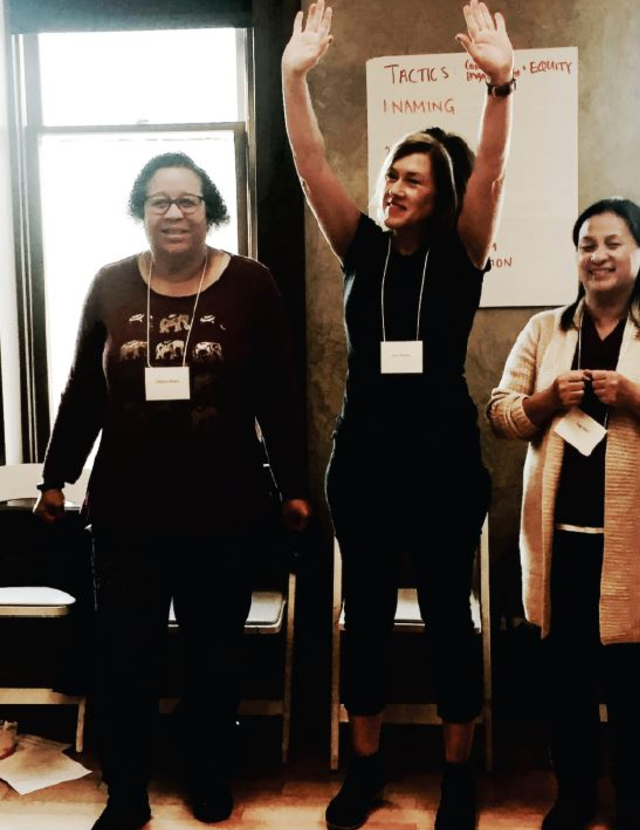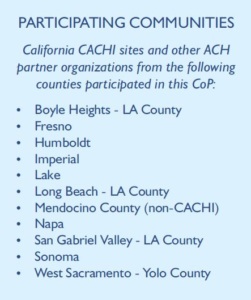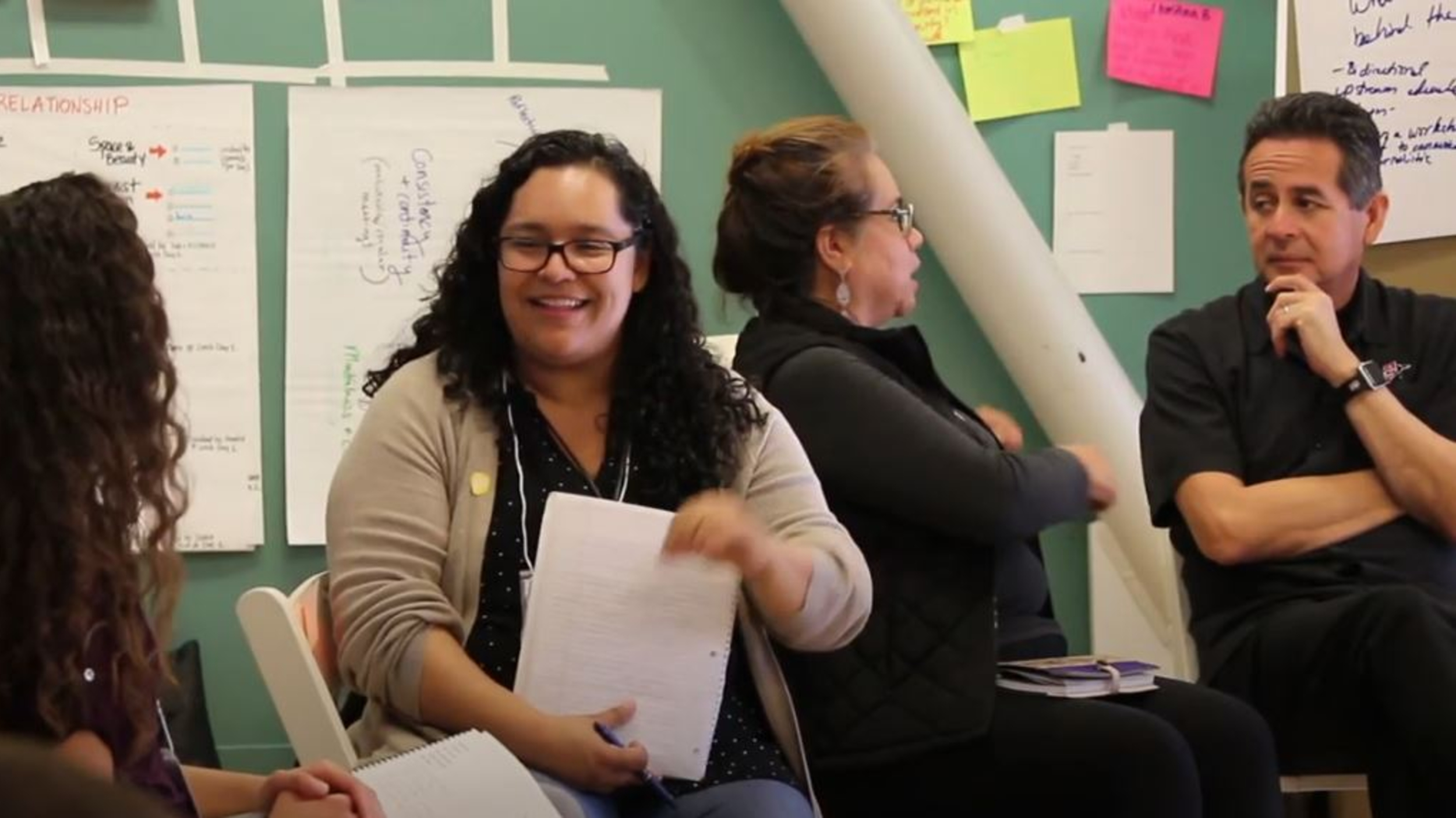Promoting Authentic Community Engagement for Stronger Health Partnerships
Highlights

From 2018-19, PHI’s Population Health Innovation Lab (PHIL) created a Community of Practice with communities most impacted by health inequities to develop stronger local partnerships, building deeper engagement with community members for improved community health and well-being.
100 people trained from 10 communities
92% learned new community engagement strategies
83% improved their understanding of community engagement
83% received support for addressing community challenges
-
Focus Areas
Capacity Building & Leadership -
Expertise
Leadership Development
PHI’s Population Health Innovation Lab (PHIL) works with communities that are most impacted by health inequities to develop stronger local partnerships for health. Through their California Accountable Communities for Health Initiative (CACHI) they employ a model known as the Accountable Communities for Health (ACH) that goes beyond the notion that doctors and hospitals alone can improve health outcomes, and instead promotes local collaborations for healthier environments.
Community inclusion and engagement are essential to the success of any ACH. But there are often significant barriers to partnerships for change. Organizations working for healthier food systems, housing policies, health care access and other local needs may not have strong relationships or trust with each other or with community members. Group leaders and residents may need to navigate unequal power distribution. There may be challenges in agreeing on strategies or tangible outcomes. Organizers may feel they have limited skills and confidence, and need help to find the best path to create projects that authentically and inclusively engage local residents.
 From 2018-19, 100 participants from 10 CACHI sites and other partner organizations led by the PHIL program joined together to create a Community of Practice (CoP), a group of people who come together around a shared passion and commit to interact regularly in order to learn how to improve their skills and knowledge related to the subject area. Their CoP focused on “Participatory Leadership for Community Inclusion” in order to effectively engage with and include their community residents in community health projects. The CoP created a space for the participants to jointly learn, co-create, and innovate solutions in order to promote healthier communities.
From 2018-19, 100 participants from 10 CACHI sites and other partner organizations led by the PHIL program joined together to create a Community of Practice (CoP), a group of people who come together around a shared passion and commit to interact regularly in order to learn how to improve their skills and knowledge related to the subject area. Their CoP focused on “Participatory Leadership for Community Inclusion” in order to effectively engage with and include their community residents in community health projects. The CoP created a space for the participants to jointly learn, co-create, and innovate solutions in order to promote healthier communities.
Through the CoP, participants aimed to strengthen engagement and inclusion of community residents in the structures of and the decision making processes for their Accountable Community for Health collaboratives. Their goal was to better understand how to create meaningful engagement with community residents, stressing inclusion and participation in the development and execution of community health initiatives. They also hoped to develop and demonstrate an effective program that could be replicated in communities across the country.
“This training caused a powerful shift in our internal team dynamics and externally as well. Our team is practicing distributed leadership and engaging our community partners in a completely different way. We were searching for a way to be more authentic, connected, and effective. We found it at this training! The highly skilled facilitators offered real tools for change and coached us to practice what we were learning. I would highly recommend it to anyone looking to do things differently.”
The CoP proceeded through three stages: first, participants learned participatory leadership methods, with practice in gathering, leading and hosting meaningful conversations that also create space for personal and organizational deep reflection. Next, they engaged in ten months of work during which PHIL/CACHI led multiple web-based continuous learning sessions for CoP participants. These sessions aimed to help participants gain skills and develop a broader system perspective. Finally, with their newly formed skills and other system change frameworks and practices, participants returned to their communities and established the conditions under which they could host meaningful conversations, identify community voices, and hear new perspectives, while scaling the work for their local conditions.
The project was an overwhelming success: prior to joining the CoP, participants believed that conducting surveys was the best, or sometimes only way to learn about community needs. After the work with PHIL, participants reported they gained the ability to have a broader systems perspective, learned new methods for engagement skills, and felt confident in applying them in their communities. In their evaluations, 91.7% of the participants said they gained Increased access to strategies and areas of expertise for community engagement, 83.3% said they improved their understanding of community engagement, and 83.3% said they received support for addressing challenges in their communities.
The participants in this CoP demonstrated enhanced skills and trust in their ability to meet community needs and include community voices in their ACH governance structures. As a result of joining the CoP, participants are better equipped to engage with community members in their ACH communities, which is associated with improved community health and well-being outcomes.
“The Community of Practice is a space where I’ve learned a new way of doing business. Knowing that we have a team of thought partners and a platform to incubate ideas, our team has applied several techniques within our organization and with our partners. Being a part of the Community of Practice has helped shape the way I think about leadership, collaboration, and systems work.”
Learn more about the project in the PHIL report, “Participatory Leadership for Community Inclusion.”
Work With Us
You change the world. We do the rest. Explore fiscal sponsorship at PHI.
Support Us
Together, we can accelerate our response to public health’s most critical issues.
Find Employment
Begin your career at the Public Health Institute.

